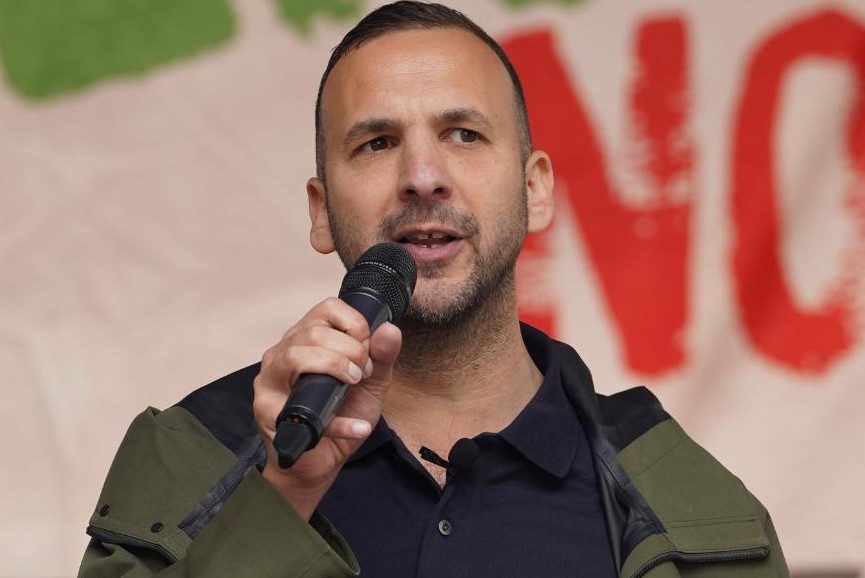Kemi Badenoch has pledged to scrap stamp duty on primary homes if the Conservatives win the next general election, calling the tax a major barrier to home ownership and social mobility.
Unveiling what could be a game-changing policy during her speech at the Conservative Party Conference in Manchester, Badenoch promised a future where moving house doesn’t come with a hefty price tag.
Badenoch vows to scrap stamp duty
“Stamp duty is a bad tax. A society where no one can afford to buy or move is a society where social mobility is dead,” she declared to a packed room of party faithful.
The proposed cut, part of a wider £9bn package of tax reductions, is being billed as a bold Conservative bid to regain support and shift momentum back in their favour ahead of the next election.
Stamp duty generated an estimated £13.9bn for the Treasury last year, with much of it coming from the sale of second homes and commercial properties.
But according to the Institute for Fiscal Studies (IFS), removing the tax from primary residences would cost about £4.5bn, a price they argue is worth paying.
Paul Johnson, the IFS’s former director, supported the move: “It would be great to scrap stamp duty. Stamp duty is a drag on the housing market.”
However, he warned that to avoid skewing the market, cuts for second homes should also be considered.
“If you got rid of it for first properties and left it there for others, it would even further increase the distortions and disincentives for rentals.”
Badenoch’s stamp duty plan could reshape the UK housing market, giving buyers and sellers a boost—but critics are questioning whether the Tories can afford it.
Tax Cuts and Tough Questions
While the policy has been met with optimism by some in the property sector, not everyone is convinced.
Jonathan Portes, a former government economist, slammed Badenoch’s wider tax strategy: “She claimed the Tories were the only party offering fiscal responsibility and yet is offering large tax cuts… with no remotely credible plan to fill the gap.”
He described the proposed cuts as “laughable”, citing the lack of clarity on how the government would balance the books.
The Conservatives insist the funding will come from a £47bn pool of savings, allegedly identified through welfare reform, trimming the civil service, and slashing the UK’s foreign aid budget.
Yet critics argue these projected savings are speculative at best.
Industry Reaction: Warm, But Wary
Tom Bill, head of UK residential research at Knight Frank, described the move as a positive one for the market: “It would inevitably have positive repercussions for the wider economy and increase social mobility.”
The Home Owners Alliance also came out in support, saying stamp duty has long been a roadblock to homeownership for ordinary families.
“Kemi Badenoch is right: it’s a tax that traps households, hampers mobility and suppresses market activity.”
But not everyone sees it as a nationwide win. Theo Bertram from the Social Market Foundation warned the policy would largely benefit those already well-off, particularly in London and the South East.
“The test will be whether the Conservatives can really make savings of at least £12bn annually to fund the cut,” he said.
Political Storm Brewing
The policy announcement comes at a tense time for Badenoch, with Reform UK making gains and public confidence in the Conservatives waning. Just yesterday, 20 Tory councillors reportedly defected to Nigel Farage’s party.
Meanwhile, Labour has criticised the Tories for being out of touch. Labour Party chair Anna Turley dismissed Badenoch’s speech, saying: “The public saw the Tories’ disastrous blueprint for Britain across their 14 years of failure… and the Conservatives still won’t apologise for the mess they left.”
Liberal Democrat leader Sir Ed Davey went further, urging moderate Conservatives to abandon ship and join his party, accusing Badenoch of turning her back on “British values”.
Green Party leader Zack Polanski added that she was “speaking to the room, not listening to the nation”.
As talk intensifies over potential reforms to both stamp duty and council tax, including the Treasury reportedly mulling a new national property tax on sales over £500,000, Badenoch’s pitch could define the Tory housing strategy for the election campaign.

Whether the public buys into it, however, may come down to one simple question: can they afford to deliver it?






